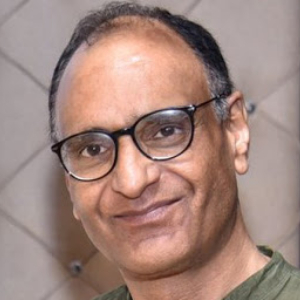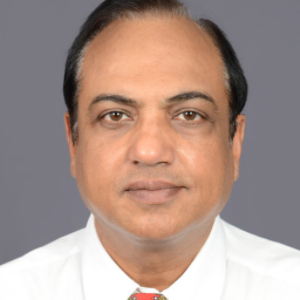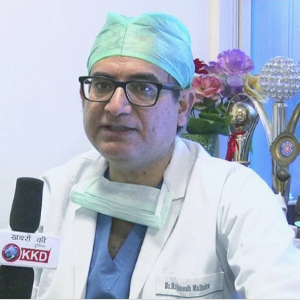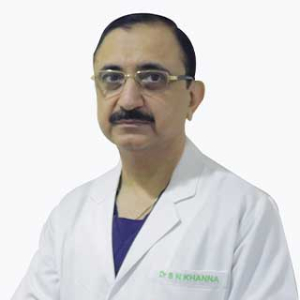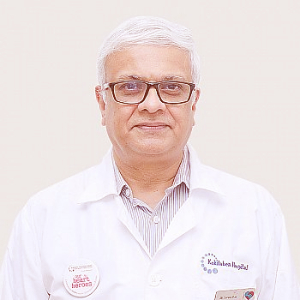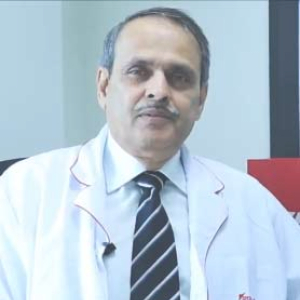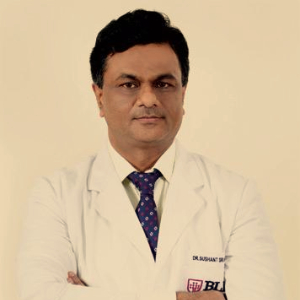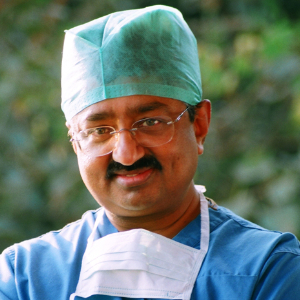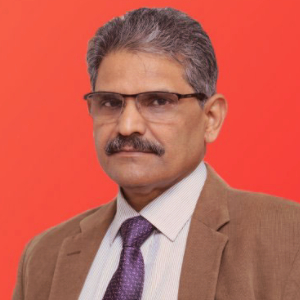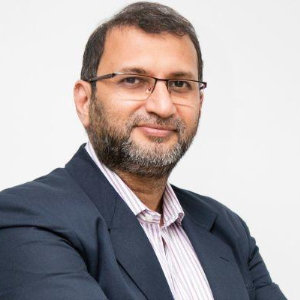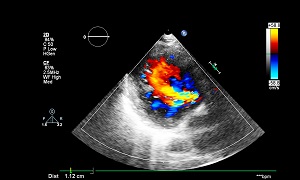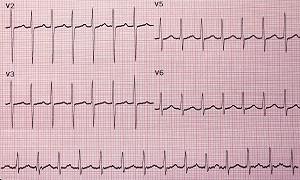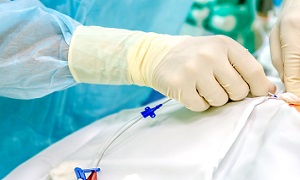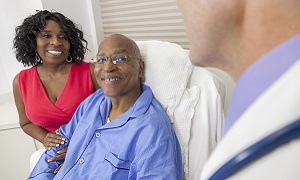Best Mitral Valve Replacement Doctors in India
Here is a list of the most reputed Cardiac Surgeons in India for Mitral Valve Replacement or repair.
- Cardiac Surgeon, Gurugram, India
- Over 30 years’ experience
Profile Highlights:
- Dr. Murtaza A Chishti is one of the most well-known and distinguished Cardio-Thoracic and Vascular surgeons in North India
- He has more than 3 decades of experience in the field of cardiac surgery with a specialization in heart and lung transplantation surgeries.
- He has performed more than 6000 cardiac procedures that include Total Arterial revascularization, aortic surgery, complex and re-operative coronary surgery, CABG, and several other cardiothoracic surgeries.
- Cardiac Surgeon, Mumbai, India
- Over 36 years’ experience
Profile Highlights:
- Dr. Nandkishore Kapadia is one of the leading Cardiothoracic and vascular surgeons in India excelling in heart and lung transplant surgeries.
- He has 36+ years of experience in the field during which he has performed over 10000 CABGs, 2000 heart valve repairs, and 800 minimally invasive cardiac surgeries.
- He has also performed more than 5000 open heart surgeries, 200 heart and lung transplant surgeries, and 150 VAD and ECMO implantation procedures.
- Cardio Thoracic & Vascular Surgeon, New Delhi, India
- Over 30 years’ experience
Profile Highlights:
- Dr. Rajneesh Malhotra is a distinguished cardiovascular and thoracic surgeon in India with over 30 years of experience.
- He is an expert in all kinds of cardiac surgeries with a special interest in Robotic Cardiac surgery along with minimally invasive cardiac surgery and other traditional heart surgeries.
- Dr. Rajneesh Malhotra has performed several complex and high-risk cases and also specializes in heart transplant surgeries and surgeries for heart failure.
- Cardiac Surgeon, New Delhi, India
- Over 26 years’ experience
Profile Highlights:
- Dr. Surendra Nath Khanna is a leading cardiovascular and thoracic surgeon specializing in minimally invasive cardiac surgeries, heart valve repairs, and heart failure surgeries.
- Dr. Surendra Khanna has 26+ years of experience in cardiac care and has performed more than 17000 surgeries that include beating heart surgery, mitral and aortic valve surgery, and double valve replacement surgery.
- His expertise lies primarily in adult cardiac surgeries and has done some of the most complex cardiac surgeries in India
- Pediatric Cardiac Surgeon, Mumbai, India
- Over 33 years’ experience
Profile Highlights:
- Dr. Suresh Rao is a highly experienced cardiac surgeon specializing in congenital heart diseases and has performed more than 12,000 surgeries for congenital heart diseases and disorders.
- Dr. Rao holds an extensive experience of over 33 years in Pediatric and congenital cardiac surgery and has performed numerous simple and complex heart defect surgeries with successful outcomes.
- Dr. Suresh Rao introduced the Modified Ultrafication procedure after congenital heart surgery in India and has used the procedure in the treatment of a large number of pediatric as well as adult patients.
- Cardiac Surgeon, Mumbai, India
- Over 30 years’ experience
Profile Highlights:
- Dr. Suresh V Joshi is a cardiac surgeon in Mumbai with expertise in undertaking complex surgeries as a result of congenital heart diseases.
- He holds an extensive experience of over 3 decades in cardiac surgery and specializes in Coronary Artery Bypass Grafting (CABG); specifically Beating Heart CABG and Minimally Invasive Cardiac Surgeries.
- He is an expert in all kinds of coronary and interventional cardiac procedures and has performed over 15,000 cardiac surgeries for different kinds of heart defects and disorders.
- Chairperson Heart & Lungs Transplant, New Delhi, India
- Over 20 years’ experience
Profile Highlights:
- Dr. Sushant Srivastava is a renowned cardiovascular and thoracic surgeon specializing in heart transplantation.
- He specializes in performing Beating Heart Bypass surgeries and is credited with performing the procedure on the oldest patient in India (96 years old). He also performed the first awake CABG in North India.
- He has taken up close to 10000 cardiac cases in his career and performed 3000+ cardiac surgeries related to Coronary Artery Bypass Grafting (CABG), redo coronary artery surgery, heart failure surgeries, heart valve surgeries, and various other types of cardiac surgeries.
- Cardiac Surgeon, Bengaluru, India
- Over 30 years’ experience
Profile Highlights:
- Dr. Vivek Jawali is a renowned Cardiothoracic and Vascular Surgeon in India and has performed more than 18,000 cardiothoracic and cardiovascular surgeries.
- He has several firsts to his credit that including the first beating heart bypass surgery in 1992 and the first Minimally Invasive Heart Bypass surgery in 1994 in India.
- He performed the first Awake Cardiac Surgery in 1999 which is done without general anesthesia or ventilator but under continuous high thoracic epidural. He also performed the first awake open heart surgery in the world without general anesthesia or ventilator on a 74-year-old patient for triple bypass with aortic valve replacement.
- Cardiac Surgeon, New Delhi, India
- Over 30 years’ experience
Profile Highlights:
- Dr. Yugal Kishore Mishra is a well-known cardiovascular and thoracic surgeon in Delhi specializing in Minimally Invasive and Robotic cardiac surgeries.
- He has 3 decades of experience in CTVS and has performed more than 19,000 open heart surgeries to date that including various types of minimally invasive cardiac procedures such as the port access approach for valve surgery and ASD closure.
- He is the founder of the Robotic Cardiac Surgery Program at Fortis Escorts Heart Institute where he has performed over 500 robotic cardiac surgeries.
- Cardiac Surgeon, Mumbai, India
- Over 24 years’ experience
Profile Highlights:
- Dr. Zainulabedin Hamdulay is one of the best cardiac surgeons in Mumbai, India, and specializes in devising new and innovative techniques for cardiac surgeries.
- He has 24+ years of experience and has performed over 8000 cardiac surgeries that included complex valve repairs, congenital cardiac surgery, CABG, and several minimally invasive cardiac surgeries.
- With a motive to provide the best, affordable and comprehensive cardiac care to all his patients, he founded the Hamdulay Heart Foundation to provide aid to the economically backward community.
Best Mitral Valve Replacement Hospitals in India
Paras Hospital, Gurugram
- City: Gurugram, India
Hospital Highlights:
- Paras hospital was established in 2006 and is the 250 bedded flagship hospital of Paras Healthcare.
- The is supported by a team of doctors of international and national repute.
- The hospital is NABH accredited and also the first hospital in the region to have a NABL accredited laboratory.
- The hospital provides specialty medical services in around 55 departments including Neurosciences, Joint Replacement, Mother & Child Care, Minimal Invasive Surgery, Gynecology and Obstetrics, Ophthalmology, Dermatology, Endocrinology, Rheumatology, Cosmetic and Plastic surgery.
- The hospital is equipped with state-of-the-art technologies.
S L Raheja Hospital, Mahim, Mumbai
- City: Mumbai, India
Hospital Highlights:
- SL Raheja hospital is a 140-bed multi-specialty tertiary care hospital that is being managed by Fortis Healthcare Ltd.
- The hospital is a benchmark in healthcare and medical facilities in the neighborhood of Mahim & the western suburbs.
- L.Raheja Hospital, Mahim has one of the most effective ICU and Casualty care services.
- The hospital provides specialty medical services in Cardiology, Oncology, Neurology, Orthopedics, Mother & Child Care, and in Diabetes.
Wockhardt Hospitals, Mumbai
- City: Mumbai, India
Hospital Highlights:
- Wockhardt Hospitals were established in the year 1973, originally called First Hospitals and Heart Institute.
- Wockhardt Hospitals are super specialty health care networks in India, nurtured by Wockhardt Ltd, India’s 5th largest Pharmaceutical and Healthcare company.
- Wockhardt Hospitals is associated with Partners Harvard Medical International, an international arm of Harvard Medical School, USA.
- Wockhardt Heart Hospital performed India’s first endoscopic heart surgery.
- The hospital has a state-of-the-art infrastructure equipped with the latest technologies and modern equipment.
- It has special Centers of Excellence dedicated to the major specialties to provide hassle-free and high-quality clinical care.
Pushpawati Singhania Hospital & Research Institute, New Delhi
- City: New Delhi, India
Hospital Highlights:
- Established in 1996, Pushpawati Singhania Research Institute is one of the top hospitals in the NCR region, as well as one of the top facilities in India for gastroenterology. The hospital is one of South Asia’s first institutes in medical and surgical treatment for diseases related to digestion.
- The hospital is equipped with state-of-the art facilities coupled with the latest equipment as well as renowned consultants from various parts of India as well as other parts of the world.
W Pratiksha Hospital, Gurgaon
- City: Gurugram, India
Hospital Highlights:
- W Pratiksha Hospital, Gurugram, is one of the best hospitals in the NCR region. It is also a top hospital in India for IVF. Since its inception, the hospital has performed over 5500 successful IVFs. The hospital also specializes in gynecology.
- With over 20 years of experience in providing quality healthcare, the hospital is known as one of the most trusted and valued health providers in India.
- Equipped with world-class medical facilities and advanced technology, the hospital’s doctors and clinicians also have a track record of delivering excellent results. The hospital is also known for focusing on preventive well-being as much as on curative treatment.
- The hospital has earned the trust of its patients, by providing the best available treatments at affordable costs.
Narayana Superspeciality Hospital, Gurugram
- City: Gurugram, India
Hospital Highlights:
- Situated near DLF Cyber City, Gurugram, Narayana Superspecialty Hospital is one of the top medical facilities in the Delhi NCR region, catering to the needs of the people. Known for its commitment to quality medical care and patient service, the hospital is a state-of-the-art facility with planned and well-equipped sections, which includes a spacious OPD area as well as comfortable patient rooms.
- It is the closest super-specialty hospital from Indira Gandhi International Airport towards Gurugram, and also the nearest super specialty hospital from DLF Cyber City. It is also close to major residential areas in Gurugram.
- It is part of the renowned Narayana Health Group. Established in 2000, by Dr. Devi Shetty, a renowned cardiac surgeon, it has grown to be one fo India’s leading healthcare groups.
Sir Ganga Ram Hospital, New Delhi
- City: New Delhi, India
Hospital Highlights:
- Sir Ganga Ram Hospital, New Delhi is known to provide the latest medical procedures with the latest technology in all of its units.
- The hospital has a team of reputed doctors, nurses, and healthcare professionals that ensure that patients receive quality care at affordable costs.
- Staffed with a team of highly qualified doctors, dedicated nurses, and paramedical and non-medical staff, the hospital aims to lead in healthcare delivery, medical education, training, and research.
- As per the vision of the founder, the hospital also provides free treatment to the economically weaker sections of society.
- Sir Ganga Ram Hospital also provides training to young doctors under the Diplomate in National Board(DNB) program. The DNB program at the hospital was started in 1984 and it is known for currently running the maximum number of DNB specialties in the country. It also has the distinction of having the first bone bank in India.
KIMS Hospital, Hyderabad
- City: Hyderabad, India
Hospital Highlights:
- KIMS Hospital (a brand name of Krishna Institute of Medical Sciences) is one of the largest and best multi-speciality hospitals in Hyderabad. The hospital provides various treatments to an enormous number of patients.
- The hospital has a capacity of more than 3000 beds. KIMS Hospitals offers different healthcare services in more than 25 specialities and super specialities.
- The hospital is equipped with modern medical equipment and technology. It has robotic equipment to provide minimal invasive techniques for patients.
- The hospital is aimed at providing world-class healthcare facilities and services at an affordable cost for patients.
- The various specialities and departments of the hospital include neurosciences, gastroenterology & hepatology, robotic science, reproductive sciences, dental science, oncological sciences, organ transplantation, heart and lung transplantation and mother and child care.
Fortis Hospital, Shalimar Bagh
- City: New Delhi, India
Hospital Highlights:
- Fortis Hospital in Shalimar Bagh is a multi-super specialty hospital that strives to provide world-class patient care by leaving no stone unturned.
- Fortis, Shalimar Bagh, with 262 beds and a 7.34-acre footprint, provides the best level of medical care through its team of doctors, nurses, technicians, and management professionals.
Reliance Hospital, Mumbai
- City: Mumbai, India
Hospital Highlights:
- Reliance Hospital is one of the best super-specialty care hospitals in Navi Mumbai.
- The main purpose of this hospital is to become a trustworthy place for the best health and hope for society. The hospital is well connected to the suburbs of Mumbai and Navi Mumbai.
- The hospital has various specialty departments, viz., Accident & Emergency, Anesthesiology, Dental Services, Dermatology, Diabetology, Dietetics Nutrition, Endocrinology, ENT, Gastroenterology, General Surgery, Gynaecology And Obstetrics, Hepato Pancreato Biliary Surgery, Infectious Disease, Internal Medicine, Interventional Radiology, Laboratory Medicine, Minimal Access Laparoscopic Surgery, Nephrology, Neurosciences, Opthalmology, Orthopaedics, Paediatrics, Pain Management Palliative Care, Physical Medicine Rehabilitation, Plastic And Reconstructive Surgery, Psychiatry, Pulmonary Medicine, Radiology, Rheumatology, Transplant, Urology Andrology, Vascular Surgery
Mitral Valve Replacement
A mitral valve replacement is performed for replacing a poorly working mitral valve with an artificial one. The heart has four valves, and the mitral valve is one of them. This organ, which lies between the left atrium and left ventricle, helps the blood to flow, through the heart and out to the body.
Indications of Mitral valve replacement
Several types of mitral valve diseases exist. In mitral valve regurgitation, the flaps of the mitral valve don’t close properly, which can cause blood to leak backward into the left atrium. This commonly occurs due to valve leaflets bulging back, a condition which is known as mitral valve prolapse.
Another condition exists, which is known as mitral valve stenosis, where the leaflets become thick or stiff, which can make them fuse together. This can result in the valve opening getting narrowed, which causes a reduction in the blood flow through the valve.
The doctor will generally try to repair your mitral valve, but when a repair is no longer possible then mitral valve replacement is considered.
Purpose
This procedure is required if your heart’s mitral valve is not working properly. Surgical repair is possible, though sometimes the valve needs a replacement.
First, your doctors will need to check how serious your condition is and if you are experiencing any symptoms. If your condition is too serious, your doctor might be recommending mitral valve repair or replacement. However, if your condition is mild you might not need any surgery.
Your doctor will next need to discuss with you whether mitral valve repair or mitral valve replacement is the most appropriate for you. Doctors generally recommend mitral valve repair but if they see that it is no longer possible, they will need to perform mitral valve replacement. Doctors might next evaluate which method is best for you: Minimally invasive heart surgery or open-heart surgery.
Preparation
Before the surgery for having your mitral valve repaired or replaced, your doctor and treatment team will need to explain to you, what exactly you can expect before and after the treatment. He/she will also discuss any potential risks. If you have any questions, it is important to discuss them with the doctor and the treatment team. You will also receive instructions that you will need to follow during your recovery time.
You might need a few tests as recommended by your doctor. This can include Chest X-ray, electrocardiogram, echocardiogram, blood tests, coronary angiogram.
Talk to your doctor regarding when you should take your regular medications, and whether you should take them before the surgery. You might also need to stop eating or drinking the night before the surgery.
You will also need to bring clothing and any personal items such as eyeglasses, hearing aids, toothbrush, comb, etc.
Test done before Mitral Valve Replacement
Electrocardiogram
Stress test
Echocardiogram
Chest X-Ray
Cardiac catheterization
Cardiac catheterization involves the insertion of a thin, flexible tube (catheter) into a blood vessel through groin and is pushed forward to the heart. With the help of this test the doctors can diagnose congenital heart defects, check pumping of heart and function of the heart valves
Procedure
First, you will be sedated before the surgery, with general anesthesia. Therefore, you will be in deep sleep during the procedure and won’t feel any pain.
The operation generally takes several hours. During the procedure, you will be connected to a heart-lung bypass machine, which will keep your blood moving through your body.
First, an incision is made, down the middle of your chest. The doctor will need to separate your heart, to access your breastbone.
Then the surgeon will remove the current mitral heart valve, after which he/she will replace it with a new one. After this is done successfully, the heart-lung machine will be removed, and your breastbone will be wired back together. Then your team will sew or staple the incision in your skin back together again.
If you receive a mechanical valve, you will require blood-thinning medications for the rest of your life for preventing any blood clots. Doctors will be discussing with you all the risks and benefits of each type of valve. He/she will also be discussing which valve is most appropriate for you, before your procedure.
Aftercare
You will be spending a day or more in the ICU. During this time, you will receive fluids, nutrition and medications through intravenous (IV) lines. Other tubes will be draining your urine from the bladder as well as fluid and blood from your heart and chest. You might also be given oxygen.
Next, you will be moved to a regular hospital room for some days. Depending on your condition and the type of surgery you went through, the time you spend in the ICU and hospital will vary.
Your condition will be monitored by your treatment team. They will watch for any signs of infection in your incision sites. Your team might also need to check your blood pressure, heart rate and breathing. Your treatment team will be working with you to manage any pain that you might experience after the surgery.
Your treatment team might instruct you to walk regularly and increase your activity gradually. They might also recommend breathing exercises as you recover.
Your doctor will also be giving you instructions that you will need to follow during your recovery. You will need to be watching for any sign of infection in your incisions, properly caring for the incisions, taking the required medications and managing pain and any side effects after the surgery.
Results
After mitral valve replacement surgery, within a few days you should be able to return to your daily routines, such as work, exercise or driving. Your doctor will be discussing with you when it is okay for you to resume your activities.
You will need to regularly attend follow-up appointments with your doctor. Several tests might be required to evaluate as well as monitor your condition.
Your doctor will likely recommend you to incorporate healthy lifestyle changes. This can include a healthy balanced diet, physical activity, stress management, and avoiding the use of tobacco.
Recovery & risks
The majority of the people who have an open mitral valve replacement usually end up with a successful outcome. However, there are a few risks. Based on your overall health, your particular risks will vary. Make sure that you talk with your doctor if you have any concerns.
Some of the risks include:
- Infection
- Blood clots leading to a heart or a stroke
- Bleeding
- Heart rhythms getting irregular
- Complications from anesthesia
- Memory loss or problems with concentration
- Continued leaking of the valve
- Damage to your nearby organs
There are a few factors which increase the risk of complications:
- Chronic illness
- Heart conditions
- Lung problems
- Infections
- Increased age
- Being obese
- Smoking
FAQs
What is the recovery time for a mitral valve replacement?
It takes 4-8 weeks to recover fully from mitral valve replacement surgery.
What is the survival rate for mitral valve replacement surgery?
The survival rate for mitral valve replacement surgery is about 94% with good surgeons.
How many years does a mitral valve repair last?
The patients are free of operation for at least 10 years after mitral valve replacement surgery.

